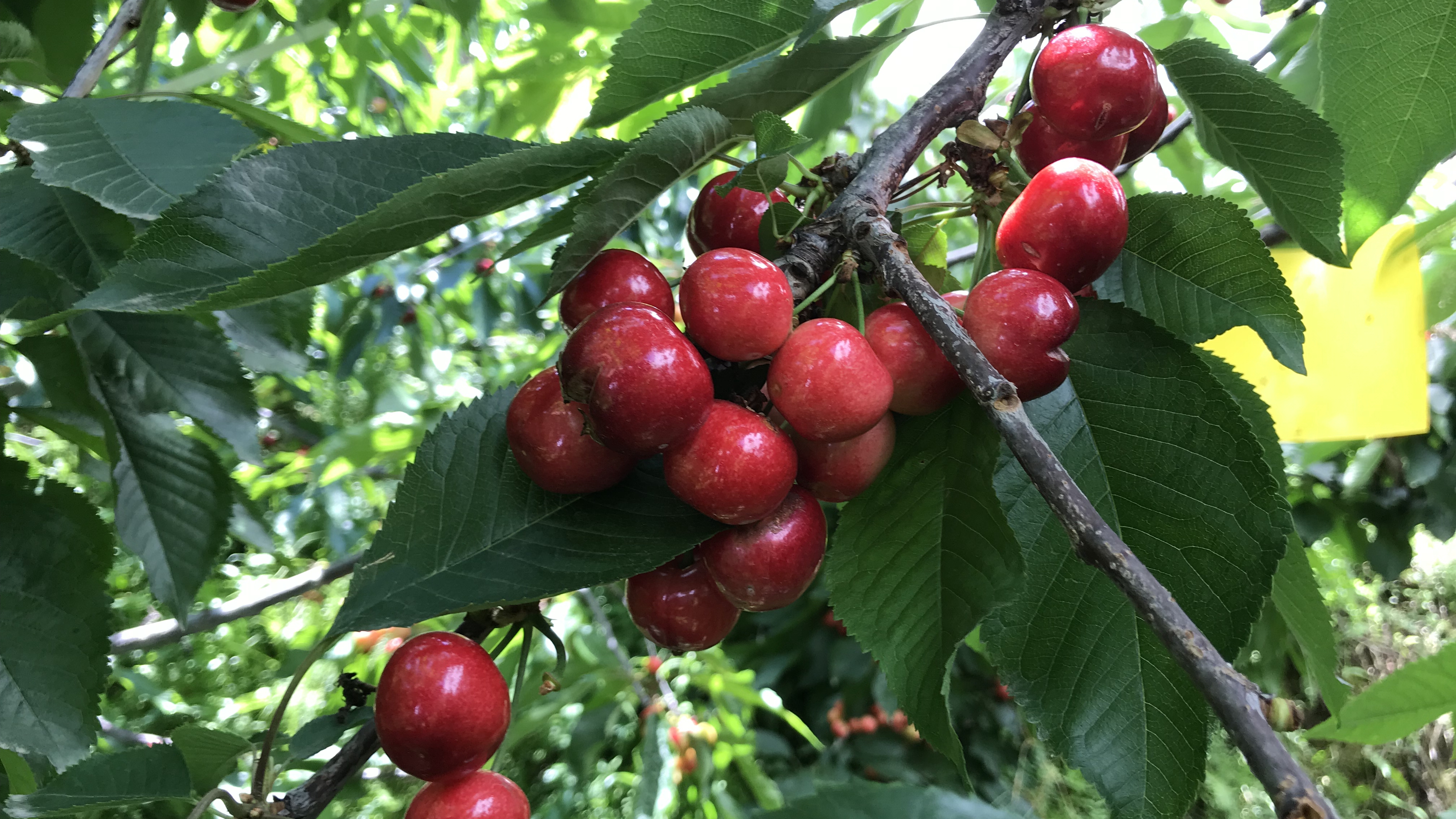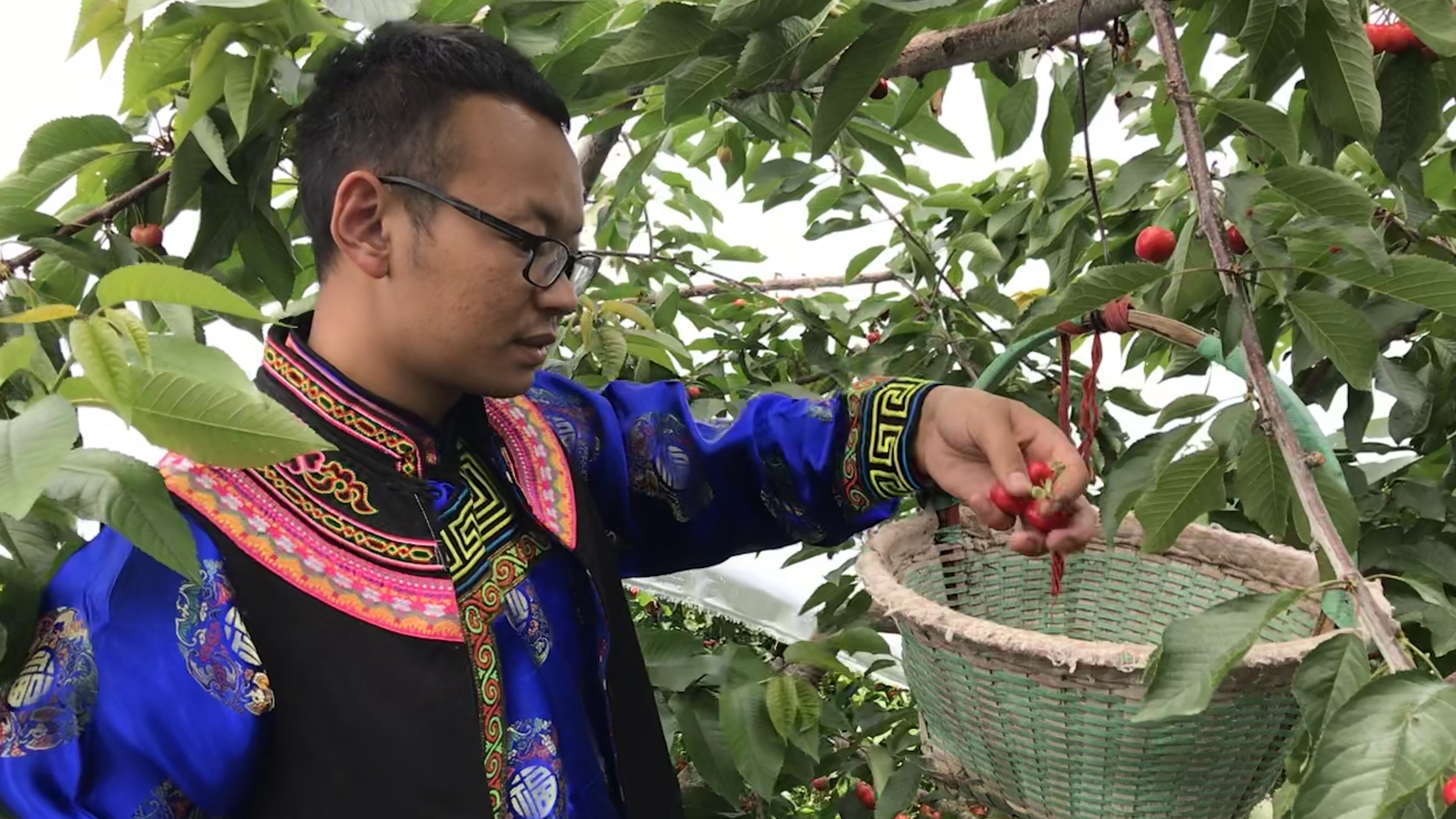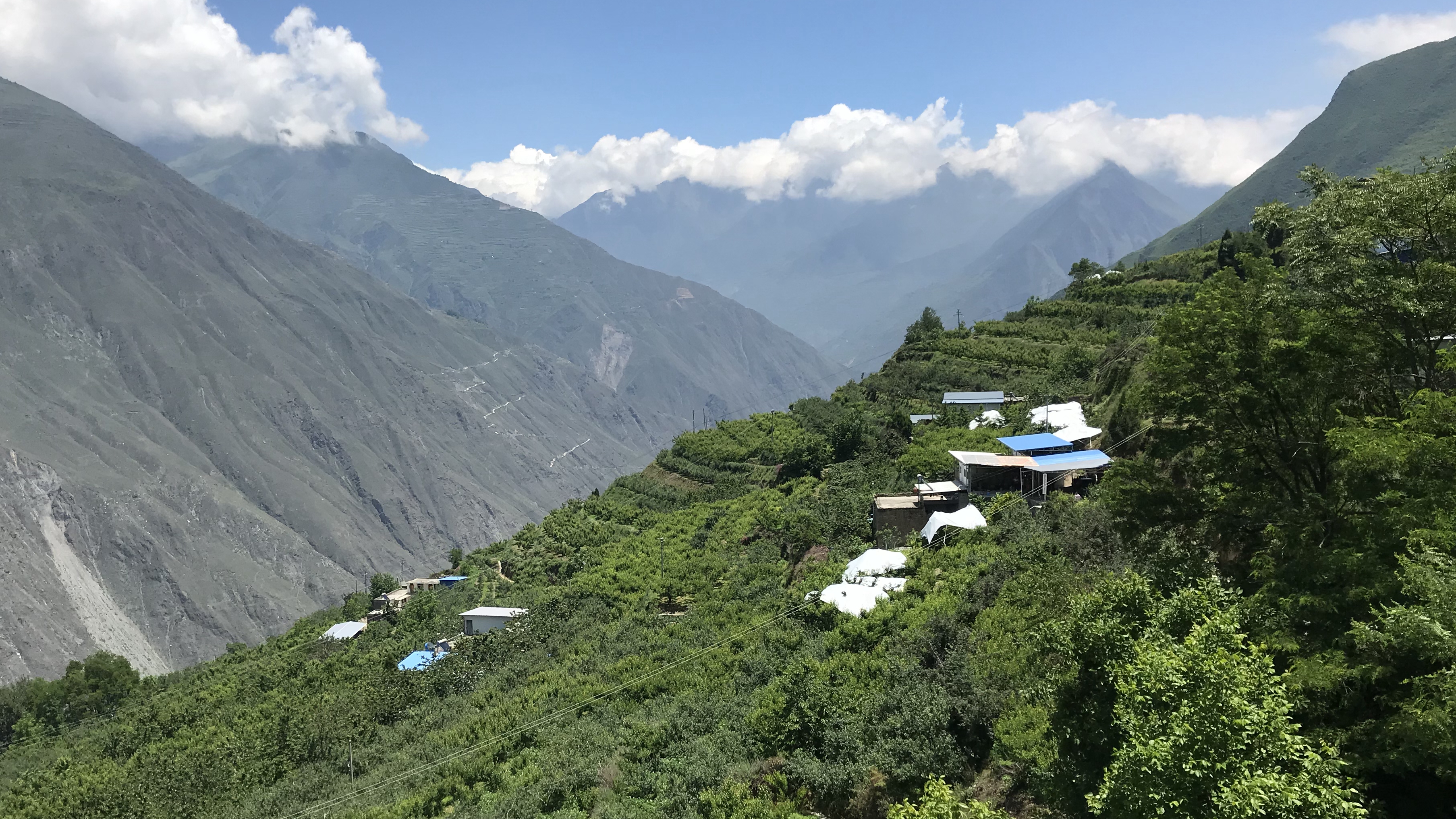
Cherries grow in Jiashan County, Aba Tibetan and Qiang Autonomous Prefecture, southwest China's Sichuan Province. Li Yang/CGTN
Cherries grow in Jiashan County, Aba Tibetan and Qiang Autonomous Prefecture, southwest China's Sichuan Province. Li Yang/CGTN
Early in the morning, Long Tingheng and his family take baskets out to their fruit farm and begin a busy day picking cherries.
Long lives in Jiashan Village of Aba Tibetan and Qiang Autonomous Region, southwest China's Sichuan Province. His family owns about four hectares of land on which they grown fruits like apples, plums and cherries.
Cherries ripe between May and July in Aba Prefecture. Cherries in the area have a sweet taste and rich flesh that are credited to the unique climate.
Long's fruit farm can sell up to 200 kilograms of cherries a day, priced at 50 yuan per kilogram.
The farmer returned to his hometown one year after he graduated from university in Chengdu in 2016. He then created a fruit sales cooperative and offered online sales on platforms such as Taobao, WeChat, and JD.com.
Last year, his company's online and offline sales reached more than three million yuan. The company has successfully helped five poor households get rid of poverty. The average annual income of those households has reached more than 80,000 yuan (about 11,300 U.S. dollars).

Long Tingheng picks cherries on his fruit farm in Jiashan County, Aba Tibetan and Qiang Autonomous Prefecture, southwest China's Sichuan Province. Li Yang/CGTN
Long Tingheng picks cherries on his fruit farm in Jiashan County, Aba Tibetan and Qiang Autonomous Prefecture, southwest China's Sichuan Province. Li Yang/CGTN
Hu Wen, the first party secretary of Jiashan county, told CGTN that farmers in the village used to grow corn and potatoes for a living, but due to low yield and price, many of them earned around 10,000 yuan a year (about 1,400 U.S. dollars).
Only in recent years, in accordance with the climate and geographical conditions of the village, have cherries been planted below an altitude of 1,600 meters on the mountain, with plums and apples planted above that altitude.

Jiashan Village of Aba Tibetan and Qiang Autonomous Prefecture in southwest China's Sichuan Province. Li Yang/CGTN
Jiashan Village of Aba Tibetan and Qiang Autonomous Prefecture in southwest China's Sichuan Province. Li Yang/CGTN
Over the years, apart from fruit planting, the village has been engaged in promoting homestay tourism, aiming at boosting local incomes.
Sichuan Province declared in March that all its Tibetan-inhabited areas had got rid of absolute poverty including Aba Tibetan and Qiang Autonomous Prefecture.
Hu Wen told CGTN that Jiashan Village is now sharing its experience in poverty alleviation with other villages and trying to help them to find their ways to raise their earnings substantially.
For Long Tingheng, this is only a beginning. He recently finished training in advertising and marketing on Douyin, the Chinese version of Tiktok. "I'm so looking forward to expanding fruit sales through this new channel. It's gonna be a big change for me," he said.